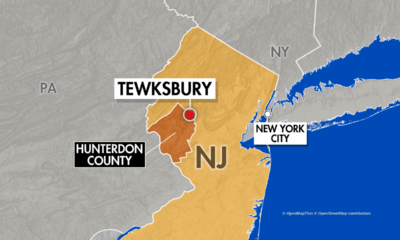Michigan
Michigan No Longer A Safe Haven For Pharmaceutical Companies?

By Elizabeth Chiarello, Julie Becker, Rachel Rein, Sidley Austin, LLP
Pharmaceutical companies may soon face more product liability litigation in Michigan after the state repealed its unique Drug Immunity Law. The Drug Immunity Law passed in 1995 provided an absolute defense for pharmaceutical companies in product liability suits stemming from the safety and efficacy of their drug products. Michigan reportedly had the only law in the nation that shielded drug manufacturers and sellers from such liability. This article addresses the impact of this change to Michigan’s law.
Michigan’s Drug Immunity Law Provided A Near Absolute Liability Defense
Section 600.2946 of the Michigan Compiled Laws governs products liability actions. Previously, § 600.2946 included a provision, subsection 5, that shielded the manufacturer or seller of a drug from products liability suits so long as the drug was approved by the FDA. Specifically, the statute said:
In a product liability action against a manufacturer or seller, a product that is a drug is not defective or unreasonably dangerous, and the manufacturer or seller is not liable, if the drug was approved for safety and efficacy by the United States Food and Drug Administration, and the drug and its labeling were in compliance with the United States Food and Drug Administration’s approval at the time the drug left the control of the manufacturer or seller.
M.C.L. §600.2946(5). Subsection 5 was known as the Drug Immunity Law and operated as a type of safe harbor provision for drug manufacturers and sellers.

The law contained three exceptions. A drug manufacturer and seller could still be liable notwithstanding subsection 5 if they (1) sold the drug after the FDA recalled it from the market or withdrew its approval; (2) bribed an FDA official to secure approval of the drug; or (3) committed fraud on the FDA by intentionally withholding or misrepresenting information in communications with the FDA. The first two exceptions to the Drug Immunity Law were exceedingly rare as a factual matter. The third exception was preempted by federal law: only the FDA itself — not a court — can determine a fraud has been committed on the agency during the regulatory-approval process.

As a result, lawsuits could not be brought by Michigan consumers under Michigan law for claims barred by subsection 5, and they were effectively barred from joining national litigation against pharmaceutical companies when Michigan law applied to their claims. Because of the slim chance that a plaintiff’s suit could fall into one of the three exceptions to the law, Michigan was among the states with the most stringent protections for drug manufacturers and sellers. But now the law has changed.
A New Act

Senate Bill 410 changed § 600.2946, effective February 13, 2024. Removing Michigan’s drug immunity provision, the law has left intact the rebuttable presumption that manufacturers and sellers of products are not liable if their product conformed to the applicable standards or regulations — for drug manufacturers and sellers, presumably FDA regulations — at the time of the product’s sale or delivery. Specifically, the law states:
In a product liability action brought against a manufacturer or seller for harm allegedly caused by a product, there is a rebuttable presumption that the manufacturer or seller is not liable if, at the time the specific unit of the product was sold or delivered to the initial purchaser or user, the aspect of the product that allegedly caused the harm was in compliance with standards relevant to the event causing the death or injury set forth in a federal or state statute or was approved by, or was in compliance with regulations or standards relevant to the event causing the death or injury promulgated by, a federal or state agency responsible for reviewing the safety of the product.
A rebuttable presumption means that a plaintiff can offer evidence to overcome the presumption and maintain his or her case. The previous exceptions to the drug immunity provision were repealed along with the immunity provision itself.
What largely remains to be seen is how case law will interpret the rebuttable presumption in the drug manufacturing and sales context, including what type of evidence and how much is necessary to successfully rebut a presumption that a drug conformed to FDA standards or regulations. This is because courts previously dismissed Michigan plaintiffs in drug products liability suits under the specific drug immunity provision, not the general products liability rebuttable presumption. The guidance that exists for courts applying Michigan law under the new act is from other areas of products liability law, including medical device manufacturing and sales. Because courts have applied the rebuttable presumption in other types of products liability suits, courts and the parties will likely look to those other areas of law to inform arguments about whether the presumption has been rebutted in pharmaceutical drug litigation.
The law appears to preserve traditional defenses to products liability claims such as misuse, assumption of risk, and lack of causation as it does not include language that bars or alters them. And because the bill is not retroactive, it does not technically impose new liability for past harms or revive claims previously dismissed under § 600.2946(5). Nevertheless, this is a noteworthy change to Michigan’s products liability law that companies operating in Michigan should consider.
Potential National Implications
The change in Michigan law may have broader significance beyond the state of Michigan. Michigan plaintiffs’ ability to join in products liability drug suits against pharmaceutical companies could lead to larger class sizes and potentially greater exposure. This also means that plaintiffs with sufficient ties to Michigan may be more likely to bring lawsuits, with the added costs that are attendant to additional litigation. And companies based in Michigan may be more likely to see lawsuits in their home state.
Guidance For Pharmaceutical Executives
Pharmaceutical companies can take action to protect their businesses from meritless claims, in light of the change in Michigan’s law. Companies can, for example:
- Consult with in-house counsel or others at the company with respect to ensuring that compliance with FDA requirements during the drug approval process can provide support later on during litigation, if appropriate;
- Communicate early and often with in-house counsel and their advisors about the best strategies for identifying, hiring, and managing counsel equipped to defend litigation in Michigan, as needed; and
- Stay abreast of the development of the law with respect to the rebuttable presumption to best position the company’s defense in any future Michigan litigation.
Although the law has changed, the extent to which that will lead to significant additional litigation remains to be seen. There is certainly an opportunity for litigation that was not previously available in Michigan. But it may be that the law operates exactly the same as before, because the presumption of compliance with FDA rules and regulations cannot be rebutted or the evidence needed to establish such a rebuttal is high. Companies based in or selling products through Michigan should take note because the law is likely to develop in new ways in the coming months and years.
About The Authors:
Elizabeth Chiarello is a partner in Sidley’s Products Liability practice and helps clients in the pharmaceutical industry manage their most complex cases, including preparing high-stakes matters for trial and serving as national coordinating and trial counsel in mass litigation.
Julie Becker is a senior managing associate at Sidley, focusing her practice on the defense of companies in products liability and class action matters in state and federal trial courts across the United States.
Rachel Rein is an associate at Sidley, focusing her practice on commercial litigation and disputes.

Michigan
Oxford shooter transferred to protective custody unit in northwest Michigan
The Oxford High School shooter has been transferred to a protective custody unit in northwest Michigan, the Michigan Department of Corrections said.
Ethan Crumbley, who was convicted of killing four students and injuring seven people in 2021, was moved Sunday to the Oaks Correctional Facility in Manistee, according to Kyle Kaminski, a spokesperson for the state Department of Corrections.
Crumbley, 18, was transferred from a unit designated for prisoners under 18 at the Thumb Correctional Facility in Lapeer.
“He reached the age of 18, so he was no longer eligible to reside in that specialized unit,” Kaminski said Monday. “He was moved to a protective custody unit at the Oaks Facility.”
Protective housing under the Corrections Department is used for reasons including notoriety of the inmate, former employees of law enforcement and prisoners who make verifiable requests for additional protection, Kaminski said.
“In (Crumbley’s) case, it relates to his notoriety,” he added.
Crumbley is serving a life sentence without the chance of parole after he pleaded guilty and was sentenced in December 2023. He was convicted after firing his gun 33 times in an attack at the Oakland County school in November 2021, killing Hana St. Juliana, 14; Madisyn Baldwin, 17; Tate Myre, 16; and Justin Shilling, 17. Seven people were injured in the attack, including a teacher. Crumbley was 15 at the time.
Crumbley’s parents, James and Jennifer Crumbley, were convicted in jury trials of involuntary manslaughter and sentenced 10-15 years in prison April 9 for gross negligence that contributed to the shooting.
They were the first parents in the United States to be charged with involuntary manslaughter in connection with their child’s mass school shooting. They filed an intent to appeal their convictions last week.
Ethan Crumbley also has filed an intent to appeal. His appointed attorney previously said Crumbley would be invoking his right to remain silent if he were to be called as a witness in his parents’ appeals.
Attorneys for Ethan Crumbley were not immediately available for comment Monday evening.
jaimery@detroitnews.com
Michigan
Operation Ghost Rider targets distracted drivers across Michigan: What to know

Forget texting, there are more dangerous driving distractions
Texting isn’t the only problem while driving. The most dangerous distraction comes within the car!
Buzz60
Drivers, be sure to keep your hands on the wheel and eyes on the road as Operation Ghost Rider is in effect in Michigan.
Law enforcement officials from agencies across the state are launching the initiative Monday, cracking down on distracted driving.
“Despite knowing the risks, distracted drivers continue to put themselves and the innocent people around them in danger,” said Jim Santilli, CEO of TIA and chairman of the Governor’s Traffic Safety Advisory Commissions’ Distracted Driving Action Team.
Make sure to put your phone away before hitting the road to avoid driving dangers and fines. Using mobile devices for phone calls or social media posts while driving is illegal in Michigan, under legislation in effect since summer 2023.
The operation features unmarked spotter vehicles with a law enforcement officer in the passenger seat, in coordination with the Transportation Improvement Association. When the officer spots a traffic violation, they notify a fully marked law enforcement unit to initiate a traffic stop.
Drivers who use a hand-held device are four times more likely to be in a crash serious enough to cause injury, according to the U.S. Department of Transportation. Drivers who text while driving are 23 times more likely to be involved in a crash.
“Sadly, many people have lost a loved one to a completely preventable behavior. We can all do our part by keeping our eyes on the road and hands on the wheel at all times,” Santilli said.
Penalties are: first violation, $100 fine and/or 16 hours of community service; second or subsequent violations, $250 fine and/or 24 hours of community service; three violations within a three-year period, driver must complete a driving-improvement course. Violators can be cited for careless driving, a three-point offense and civil infraction punishable by a fine. Fines are doubled if a traffic crash occurs and the at-fault driver was holding or manually using a mobile device while operating the vehicle.
Operation Ghost Rider has been in effect in Michigan since 2017, with more operations set for 2024.
Michigan
Climate group plans legal pushback on permit for Line 5 tunnel project • Michigan Advance

This coverage is made possible through a partnership between IPR and Grist, a nonprofit environmental media organization.
At issue is the commission’s permit for Enbridge’s Line 5 tunnel project beneath the Straits of Mackinac.
The Canadian company Enbridge wants to relocate the existing dual pipelines running some four miles along the lakebed in the Straits of Mackinac into a proposed tunnel that would be built in the bedrock underneath the straits.
In December, the Michigan Public Service Commission approved the project. Since then, it has faced appeals from tribes and environmental groups. Now, the climate action network will join that legal opposition.
Opponents of the tunnel worry about Line 5 continuing to operate at all, risking a spill and billions of dollars of damage to the environment.
“The most viable and sensible course of action is to shut down Line 5, and focus on cleaner, better energy alternatives,” said Denise Keele, the network’s executive director, speaking as part of a panel held on Wednesday in Traverse City.
The event was called “Tunnel Vision: A Masterclass in Rejecting the Line 5 Oil Tunnel.” It was organized by Groundwork Center for Resilient Communities, Sierra Club, Progress Michigan, and Oil & Water Don’t Mix.
Keele didn’t say what exactly the appeal would argue, although she told the Traverse City Record-Eagle that it would use the state’s environmental protection law, including protections against methane emissions.
When the public service commission announced the permit, chair Dan Scripps said the tunnel would be the best way to reduce the risk of a “catastrophic” oil spill in the straits. Opponents of the project hold that the best way to address that risk is to shut down the pipeline. Enbridge maintains that the pipeline is necessary to transport oil and natural gas liquids.
The public service commission’s permit for Enbridge’s pipeline relocation plan was the first time a state agency considered greenhouse gas emissions in an analysis under Michigan’s environmental policy act.
The climate action network and the Environmental Law & Policy Center pushed for the commission to do so, winning an appeal in 2021.
“We decided to have our own day in court, and to challenge Enbridge, challenge the Michigan Public Service Commission and, frankly, challenge the law itself to recognize what we already know — that we are living in this climate crisis,” Keele said.
Previously, experts told the Michigan Public Service Commission that continuing to operate Line 5 in a tunnel would release tens of millions of tons of carbon dioxide into the atmosphere each year, compared to shutting down operations in the straits altogether.
But the commission said in its decision that proposed alternatives to the tunnel project, like transporting fuel by rail and truck, could be more harmful to the environment and that “there are no feasible and prudent alternatives to the Replacement Project pursuant to MEPA.”
MEPA is the Michigan Environmental Protection Act.
In an emailed statement to IPR, Enbridge spokesperson Ryan Duffy said “we are building the Great Lakes Tunnel as a sustainable way to ensure energy is delivered reliably and safely, while protecting the waters of Lake Michigan and Huron for Michiganders now, and generations to come.”
As for the legal challenges, Duffy said Enbridge officials believe the Michigan Court of Appeals will ultimately uphold the public service commission’s decision to green light the project.
Beyond the state Court of Appeals, the project still needs a federal permit from the U.S. Army Corps of Engineers. A decision is expected in 2026.
Editor’s note: Enbridge is among Interlochen Public Radio’s financial supporters. They have no role in decisions about our news coverage, which are made independently by the IPR newsroom.
-

 World1 week ago
World1 week agoShipping firms plead for UN help amid escalating Middle East conflict
-

 Politics1 week ago
Politics1 week agoICE chief says this foreign adversary isn’t taking back its illegal immigrants
-

 Politics1 week ago
Politics1 week ago'Nothing more backwards' than US funding Ukraine border security but not our own, conservatives say
-

 News1 week ago
News1 week agoThe San Francisco Zoo will receive a pair of pandas from China
-

 World1 week ago
World1 week agoTwo Mexican mayoral contenders found dead on same day
-

 World1 week ago
World1 week agoBrussels, my love? The EU single market is not sexy enough for voters
-

 Politics1 week ago
Politics1 week agoRepublican aims to break decades long Senate election losing streak in this blue state
-

 World1 week ago
World1 week agoEU sanctions extremist Israeli settlers over violence in the West Bank




















